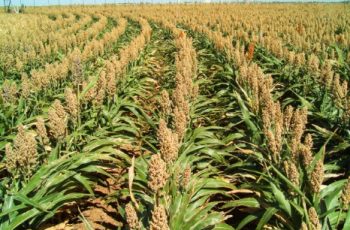How To Start Commercial Mushroom Farming Business In Nigeria

Commercial mushroom farming is a very profitable alternative for vegetable farmers in Nigeria as it comes with great business opportunities. For you to really succeed in commercial mushroom farming business in Nigeria, you need to understand everything about the business. Your ability to know the modern techniques and the species of mushroom in demand in Nigeria and other foreign countries. The very few farmers who are into mushroom farming in Nigeria are making good money and the farming process is very simple.
Read: How to start a vegetable farming business in Nigeria
The rising consciousness of people to eat healthy food has brought about the lucrative nature of the commercial mushroom farming business. If you are looking for a legitimate way of making quick money from agriculture, you need to look the way of mushroom farming. This article provides you with all the necessary information and guide to succeed in commercial mushroom farming business in Nigeria.
To start a commercial mushroom farming business in Nigeria, you will need a little amount of startup capital. This makes mushroom farming in Nigeria a low-risk agribusiness investment. In order to help you understand more about commercial mushroom farming in Nigeria, this article focuses on the following:
- Cost of starting a mushroom farm in Nigeria
- Uses of mushroom in Nigeria
- Commercial mushroom farming in Nigeria
- Mushroom price per kg in Nigeria
- The mushroom farming profitability in Nigeria
- Mushroom farming in Nigeria
I know that the exposition of the above-mentioned points will certainly help you to understand the nitty-gritty of commercial mushroom farming business.
Why You Need To Invest In Commercial Mushroom Farming Business In Nigeria
What every business person looks for is how to make a profit, and mushroom farming business is very profitable and lucrative. This is because; commercial mushroom farming is not a capital intensive agribusiness investment. Depending on the size of your mushroom farm, you can start commercial mushroom farming with N100, 000 – N120, 000.
The high protein content with no fat and cholesterol makes mushroom a very desirable meal among the elites. This makes the mushroom business very profitable. You should know that most by-products of mushroom are used in cosmetics and medicines. This is because mushrooms contain almost all the amino acids needed by the body. For the fact that mushrooms are scarce during the dry season should make you invest in a commercial mushroom farming business.
By cultivating mushroom all year round means that you have dug a gold mine for yourself through this particular business. You need to invest now rather than later if you want to really reap the benefits of the mushroom business. The profits from investments in commercial mushroom farming could make investments break even just within 3-4 months of the farming process.
Important Facts About Mushrooms
Before you venture into commercial mushroom farming business, you need to pay good attention to these facts. They include the following:
- Not all mushrooms are edible; there are ones that are very poisonous and harmful to the body. You have to be very careful while selecting the particular species for your farming business.
- Mushrooms require a good amount of water for their optimal growth and development
- You should know that mushrooms require enough shade to protect them from sunlight and wind
Requirements For Starting Your Commercial Mushroom Farming In Nigeria
There are certain requirements and processes that you must adhere to in order to succeed in mushroom farming in Nigeria. These requirements include the following:
See: How to start breadfruit farming in Nigeria
-
Have a well-detailed commercial mushroom farming business plan
There is no business, no matter how great the idea; that can stand the test of time without a good business plan. So, having a business plan is a necessity for your mushroom farming business in Nigeria. Aside from providing you with the needed guidance, your business plan can also help you source for funds for the business. There is no investor that will look your way if you can’t provide a good business plan for your mushroom farming business investment.
This means that having a good business plan is a pre-requisite to having a successful commercial mushroom farming business in Nigeria.
-
Select edible species for your commercial mushroom farming business in Nigeria
You wouldn’t want to poison your customers in the process of selling your mushrooms, would you? Well, I know your answer is no, so you need to make sure that you choose the non-toxic and edible species of mushrooms for your farming activities. Some of these edible varieties of mushroom that you can cultivate in Nigeria include the following:
-
The Chanterelles
These particular species belong to the category of Mycorrhizal and they are very rich in vitamins C and D. It also contains a high amount of potassium.
-
Oysters
They belong to the category of saprophytic mushrooms that grow on decaying plants and animals. These particular species are known to have anti-oxidants as well as anti-bacterial effects. The oysters also help to lower the cholesterol content of the body.
Also read: How to make millions from sesame farming in Nigeria
-
Morels
It also belongs to the saprophytic group of mushrooms that grow on decaying matter. Morels protect the liver and other internal body organs from toxic substances. It also contains vitamin C and anti-oxidants.
-
Shiitake
It is also a member of the saprophytic group of mushrooms and they are very easy to cultivate for commercial purposes.
Once you have selected the particular species of mushroom to cultivate on your mushroom farm, the next step is to buy the spawn. The mushroom spawn is the material that carries the mycelium of the strain of the mushroom until it is cultivated. The spawn can be sawdust or any material that has the ability to hold the mushroom strain until it is ready to be cultivated.
-
Select the medium to cultivate your mushroom
Immediately you have purchased the mushroom spawn, your next step is to decide on the medium to grow the mushroom. There are three mediums that you can cultivate your mushroom for commercial purposes. These mediums include;
- Sawdust
- Straw, and
- On a log of wood
When you are making use of logs, you need to make sure that the log is safe to support the growth of the mushrooms. You have to create holes on the log of wood in order to introduce the mushroom pawn. Then you need to keep the logs under a shade and water it continuously until the growth of the mushroom.
For the sawdust, you will need to put the following into consideration or your commercial mushroom farming business:
- You need to make sure that the sawdust contains no microorganisms that may disturb the growth of the mushroom.
- Spread the sawdust on a container that has enough space to support the growth of the mushroom.
- You should mix the mushroom spawn with the medium inside the container
- There is a specific amount of heat needed for the roots of the mushroom to attach properly on the medium. You can provide this heat by placing the container under direct sunlight for a little while.
- After this heating process, you should transfer the container to a dark room with low temperature.
- Leave the mixture in the dark environment for about 3-4 weeks for the mushroom to grow.
The commercial mushroom farming business is very ideal for entrepreneurs and investors that wish to enjoy good profits in agribusiness investment. There is a need for you to attend training courses and seminars on mushroom farming in Nigeria.
ATTENTION…
Contact Entrepreneur Nigeria on +2347037281050 for your well-detailed business plan which will be made available within 2 weeks of your order.
For your contribution and questions, kindly make use of the space provided below.THANKS

